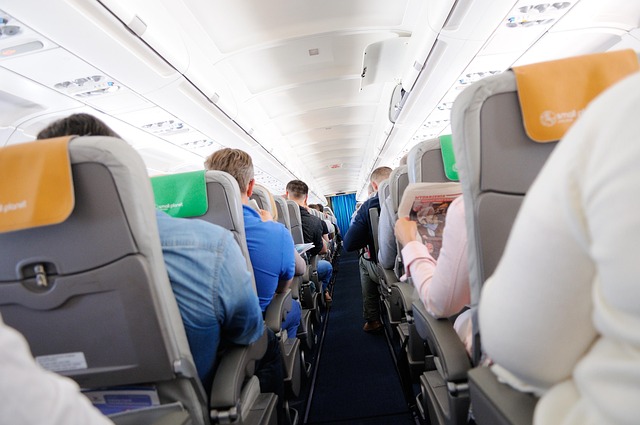Traveling abroad is a dream for many, but the high costs of flights, accommodation, and daily expenses often discourage people from making it happen. The good news is that with the right strategies, you can explore new countries, experience different cultures, and enjoy exciting adventures without spending a fortune. Whether you are a student, a young professional, or simply a budget-conscious traveler, there are smart ways to make your international trips affordable.
In this guide, we’ll explore practical tips on how to travel abroad on a low budget, including affordable destinations, money-saving travel hacks, and how to make the most of your experience.
1. Choose Budget-Friendly Destinations
Not all countries cost the same to visit. Some places are naturally cheaper due to their cost of living, exchange rates, and availability of affordable tourism services. For example, Southeast Asian countries like Thailand, Vietnam, and Indonesia are famous for being budget-friendly, while European countries like Poland, Hungary, and Portugal offer cheaper options compared to Western Europe.
By choosing destinations where your currency stretches further, you can enjoy more activities, food, and experiences at lower costs.
2. Book Flights Smartly
Airfare usually takes the largest portion of a travel budget. To cut costs:
- Use flight comparison tools like Skyscanner or Google Flights.
- Be flexible with your travel dates. Flying midweek is often cheaper than weekends.
- Look for nearby airports; sometimes flying to a neighboring city can save money.
- Book in advance or look for last-minute deals depending on your flexibility.
Some budget airlines offer incredibly low fares if you travel light and avoid extra luggage fees.
3. Travel During Off-Peak Seasons
Peak tourist seasons mean higher prices for flights, hotels, and even attractions. Traveling during off-peak times—like spring or autumn in many countries—can save you hundreds of dollars. Plus, destinations are less crowded, making your trip more enjoyable.
4. Use Affordable Accommodation Options
Hotels can be expensive, but you have alternatives:
- Hostels – Great for budget travelers, especially solo adventurers.
- Guesthouses – Offer homely experiences at lower rates.
- Airbnb or short-term rentals – Ideal for groups or longer stays.
- Couchsurfing – A platform where locals host travelers for free.
You can also consider volunteering or work-exchange programs that offer free accommodation in exchange for a few hours of work daily.
ALSO READ: Best Travel Destinations for First-Time Travelers
5. Eat Like a Local
Food is one of the best parts of traveling, but eating at tourist restaurants can drain your budget quickly. Instead:
- Try local street food—it’s often cheaper and more authentic.
- Shop at local markets for fresh, inexpensive meals.
- Cook your own meals if you’re staying in an Airbnb or hostel with a kitchen.
This way, you’ll save money and experience the culture more authentically.
6. Use Public Transportation
Taxis and private cars can be very expensive abroad. Opt for cheaper alternatives like buses, trains, trams, or metro systems. In some cities, you can even rent bicycles or use shared scooters for low costs. Walking is also a great way to explore and save money.
7. Look for Free and Low-Cost Attractions
Traveling abroad doesn’t always mean spending money on expensive attractions. Many cities have free museums, walking tours, cultural festivals, and historical sites. National parks and nature spots also offer incredible experiences at little to no cost.
Research your destination beforehand to find out free or discounted activities.
8. Manage Your Money Wisely
Currency exchange and bank fees can eat into your budget. To avoid this:
- Use local ATMs instead of exchanging money at airports.
- Get a travel-friendly debit or credit card with low fees.
- Track your spending daily to stay within your budget.
9. Travel with Friends or Groups
Traveling with others can reduce costs significantly since you can share accommodation, transportation, and food expenses. Group travel is especially useful for students or first-time travelers on a budget.
10. Plan Ahead but Stay Flexible
Planning helps you save money, but being flexible allows you to grab last-minute deals and adapt to cheaper options. A balance of both is the best way to travel affordably.
FAQs About Traveling Abroad on a Low Budget
1. Which countries are cheapest to travel to from Nigeria?
Some of the most budget-friendly destinations from Nigeria include Ghana, Kenya, Egypt, Morocco, Turkey, and the United Arab Emirates. For long-haul destinations, Southeast Asia and Eastern Europe are also affordable.
2. How much money do I need to travel abroad on a low budget?
This depends on the destination and length of stay, but a budget traveler can manage with $30–$50 per day in affordable countries. With proper planning, a two-week international trip could cost as little as $700–$1,000.
3. Can I travel abroad for free?
While you may not completely eliminate costs, programs like volunteering, work exchanges, scholarships, or travel grants can cover major expenses such as accommodation and even flights in some cases.
4. What are the best websites for cheap flights?
Popular sites include Skyscanner, Google Flights, Kayak, and Momondo. Budget airlines also list direct deals on their websites.
5. How can students travel abroad on a budget?
Students can apply for exchange programs, internships, or scholarships that include travel support. They can also use student discounts on flights, museums, and public transportation.
Final Thoughts
Traveling abroad on a low budget is absolutely possible with the right mindset and strategies. From choosing affordable destinations to cutting down accommodation and food costs, small adjustments can lead to big savings. Remember, the goal isn’t just to save money but to create meaningful experiences. With proper planning and flexibility, you can make your travel dreams come true without breaking the bank.
